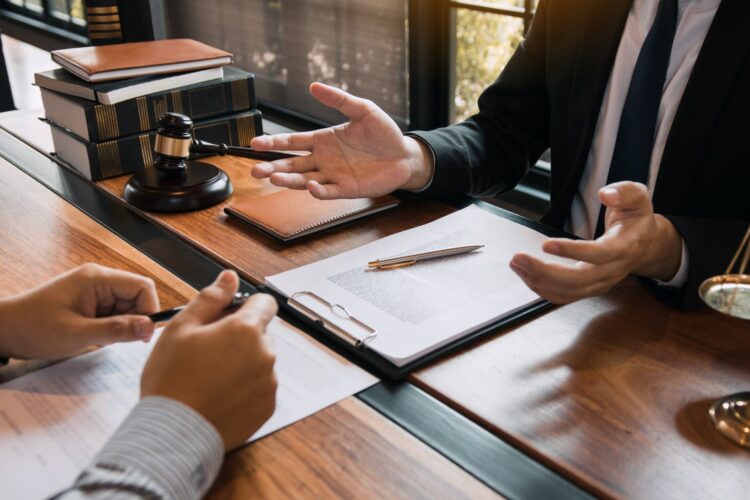When Should You Plead Guilty In A Criminal Case?

Being charged with a crime can be a traumatic and stressful time for the accused. Unless you work in the legal sector, you may only have cursory knowledge of what can happen after you’ve been charged. Like most people, maybe all you know is what you’ve seen on TV.
Real life legal issues are much more complicated than what we see on TV or in popular culture. Anyone charged with a crime deserves to know what comes next. This article will explain what happens if you plead guilty to a crime and it will also enlighten you about the other stages of the legal process as well as the importance of having quality legal representation. When you plead guilty to a crime, you give up a number of rights, knowing what those are is essential to navigating your way through the criminal justice system.
What is a criminal case?
Crimes are categorized as misdemeanor or felony offenses under Title 16 of the Georgia Code. Misdemeanors are classified and defined as minor charges such as traffic violations, petty theft, and trespassing. These can still carry heavy penalties such as fines, community service, and jail time. Felony charges are charges where you could face multiple years in prison, fines and court costs totaling tens of thousands of dollars, as well as other hardships.
Examples of felony crimes:
- DUI charges
- Robbery, burglary, fraud and theft (felony theft often starts at $500)
- Drug possession, distribution, and manufacture
- Assault and battery
- Sexual assault or domestic violence
- Vehicular homicide
Remember that any type of criminal charge that results in a conviction will remain on your record and keep you from being eligible for some jobs, student loans and even renting property.
What is an arraignment hearing?
An arraignment is a court proceeding where the defendant is formally advised of the charges against them and then asked to enter a plea to the charges. Many states also decide whether the defendant will be released pending the trial at the arraignment as well. Typically, there are three pleas you can enter: guilty, not guilty or no contest. Make sure to consult an experienced lawyer before you enter your plea.
What is a plea deal and how do I negotiate one?
A plea deal (or “plea bargain”) is a deal that is offered to the defendant by the prosecution in a criminal case. Most times, this deal will mean the defendant pleads guilty in exchange for a reduced sentence or a conviction on a lesser charge. Your plea is a bargaining chip, so always remember it is your greatest asset when negotiating a plea deal. Keep in mind pleading guilty comes with caveats such as waiving certain rights.
Waiving Your Rights
The judge must accept the terms of your plea deal before accepting your guilty plea. The judge will also make sure you understand that when you plead guilty you waive:
- The right to a trial with a jury
- The right to cross-examine your accusers
- The right to an attorney
When is pleading guilty the right choice?
There are times when pleading guilty is the right course of action. There are two main reasons pleading guilty to a criminal charge might be the right answer for you, these would be:
- Time: A trial for a criminal case can be a drawn out, long process. Some cases can take months and for even more complicated cases, they can take up to even a year or more to finish.
- Cost: Pleading guilty can potentially greatly reduce your legal fees, as a long trial calls for lengthy legal representation, which can become quite expensive. These costs may pale in comparison to the monetary, time, and quality of life opportunity cost of being found guilty, however.
When does the case go to trial?
If you decide to plead not guilty and the charges are not dropped, your case will go to trial. Trials conclude with an acquittal (judged not guilty,) a conviction or a hung jury (mistrial.) A mistrial is called when the jurors cannot reach a verdict.
Everyone makes mistakes, and sometimes those mistakes lead us to needing legal help. A guilty plea on record can have consequences ,and knowing when to plead that way is extremely important. Everyone deserves a second chance and having top-quality legal counsel is a must-have for any criminal case.
Looking for an experienced criminal defense lawyer?
A criminal charge must be handled in a professional and determined manner. Anything less can threaten your freedom and future. Andrew Schwartz has an enviable record of success in challenging criminal defense cases. He is one of the best Cobb County criminal attorneys and will work to develop a strong and effective defense of your rights and freedom. Mr. Schwartz devotes his entire practice to criminal defense, including:
- DUI-Both Driving under the Influence of Alcohol and/or Drugs
- Drug Charges, including Possession, Possession with Intent, Trafficking
- Theft, burglary and shoplifting
- White Collar and Internet Crimes
- Probation Violations
- Traffic Offenses
- Felony and Misdemeanor Charges
You probably have many questions about the criminal law process and what happens next. In a free, no-obligation consultation, Mr. Schwartz can evaluate your situation and discuss your legal options. For a free initial consultation with a criminal lawyer in Cobb County GA, call 678-853-2500 or contact us online today.
